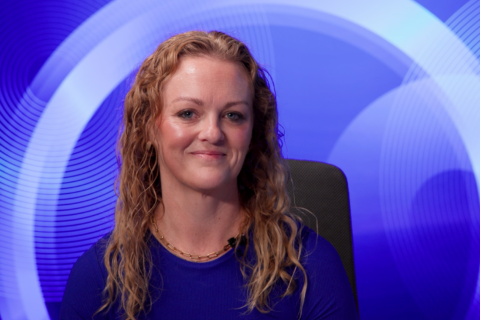
You can save money to better your future financial health, but did you know you can also invest in your physical health? Everyday choices you make in your 20s, 30s and 40s — from what you eat, to the immunizations you receive — can impact your well-being now and down the road, and even help to prevent cancer.
Prevent Cancer Foundation, based in Alexandria, Virginia, is at the forefront of research, education and outreach in this field. Its founder and CEO Carolyn (“Bo”) Aldigé and vice chairman Dr. Jim Mulshine stopped by WTOP to discuss various actions and behaviors that can lower one’s risk for developing cancer.
Similar to heart disease and diabetes, cancer is a chronic disease that can be influenced by a number of lifestyle choices, such as tobacco use and diet. In fact, research shows that up to 50 percent of cancer cases are preventable.
Prevent Cancer Foundation focuses on seven steps that reduce cancer risk. In this segment, Bo Aldigé and Dr. Jim Mulshine dive into the details behind these seven steps and discuss the best age at which one should adopt these behaviors. Aldigé and Mulshine also touch on surprising trends in cancer, including obesity’s growing role.
“It’s really a wonderful time, because we have so many things that we can do proactively to reduce our risks of these cancers — and these things are not bad things, they’re not onerous things, these are things we can simply build in and they have spillover into your health in other kinds of beneficial ways,” Mulshine said.
In addition to lifestyle choices, viruses also play a role in the development of cancer. The Human Papillomavirus (HPV) can cause six types of cancer, and Hepatitis B can lead to liver cancer. But there is something individuals can do to prevent cancers caused by these two viruses, and that begins with a vaccine.
In this segment, Bo Aldigé and Dr. Jim Mulshine discuss the importance of patient (or parent)-provider communication surrounding vaccines, including the ages at which both boys and girls should receive the HPV vaccine.
“Now these cancers can be quite aggressive, and if you can vaccinate a child before there’s exposure to these things and skip all that, it’s remarkable — it’s miraculous at some level,” Mulshine said.
“A century ago, the leading cause of cancer death in women in the United States was cervical cancer, and now, we’re talking about programs to basically eliminate cervical cancer as a cause of death. I don’t know if we’ll get there right away, but we have the tools.”
Early detection is one of the best defenses against cancer, which is why cancer screenings are so important. In the third and final segment, Bo Aldigé and Dr. Jim Mulshine discuss innovations in screening methods, including promising research in lung cancer screenings, and recommendations on what’s still needed to save lives.
“The holy grail for us is that there be more tests for more lethal kinds of cancer,” Aldigé said.
“And I’ll just give you one example: pancreatic cancer. We know virtually nothing about screening for what’s a really, really lethal disease and on the rise, unfortunately.”








